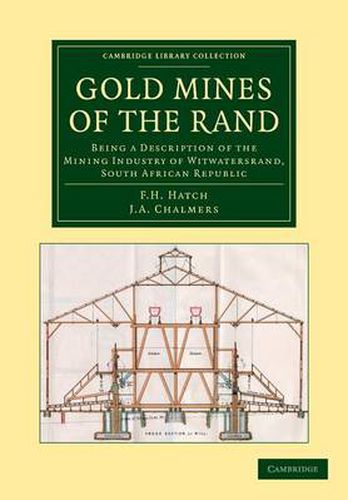Readings Newsletter
Become a Readings Member to make your shopping experience even easier.
Sign in or sign up for free!
You’re not far away from qualifying for FREE standard shipping within Australia
You’ve qualified for FREE standard shipping within Australia
The cart is loading…






The mining engineer and petrologist Frederick Henry Hatch (1864-1932) left the Geological Survey of Great Britain in 1892, relocating to South Africa. He worked for De Beers and with John Hays Hammond for Cecil Rhodes, finding important new gold fields in Matabeleland and Mashonaland. Control of the gold mines was a significant factor in the tension between Dutch and English settlers that would result in the Second Boer War in 1899. Prior to this, Rhodes and Hammond were behind the abortive Jameson Raid, but Hatch had returned to England briefly and was not implicated. This 1895 work, written with South African mining engineer J. A. Chalmers, reveals the extent of gold reserves in the Transvaal, and the engineering skills needed to exploit them. It deals with geological, economic and legal aspects of the mining industry, remaining of interest to historians of South Africa and the British Empire.
$9.00 standard shipping within Australia
FREE standard shipping within Australia for orders over $100.00
Express & International shipping calculated at checkout
The mining engineer and petrologist Frederick Henry Hatch (1864-1932) left the Geological Survey of Great Britain in 1892, relocating to South Africa. He worked for De Beers and with John Hays Hammond for Cecil Rhodes, finding important new gold fields in Matabeleland and Mashonaland. Control of the gold mines was a significant factor in the tension between Dutch and English settlers that would result in the Second Boer War in 1899. Prior to this, Rhodes and Hammond were behind the abortive Jameson Raid, but Hatch had returned to England briefly and was not implicated. This 1895 work, written with South African mining engineer J. A. Chalmers, reveals the extent of gold reserves in the Transvaal, and the engineering skills needed to exploit them. It deals with geological, economic and legal aspects of the mining industry, remaining of interest to historians of South Africa and the British Empire.